How to Maximize Your AC’s Efficiency During Heat Waves
Air Conditioner Can’t Keep Up On Hot Days?
Since the mid-1990s, heat waves in summer have nearly doubled in frequency in the Pacific Northwest. That likely means you’re running your air conditioner more to stay cool. If that’s the case, it’s a good idea to focus on maximizing your system’s efficiency. This will keep you comfortable and save money on ever-increasing energy bills.
In this guide, we’re going to look at some practical tips to help you optimize your AC’s performance during this summer heat waves.
Regular Maintenance and Inspection
Keeping your air conditioning system running as efficiently as possible means performing routine preventative maintenance. We suggest you call an HVAC technician at least once per year to perform a professional checkup. But, there are things you can do on your own right now to make sure your air conditioner is in pristine condition, including:
Clean and Replace Filters: Check and clean your filters every six months to ensure optimal airflow.
Inspect Ductwork: Check your HVAC’s ducts for any leaks or blockages that could reduce your system’s efficiency.
Heat Wave Cooling Tips
During a heat wave, it's important to find ways to reduce cooling costs. This can ensure your AC system is running efficiently. Regular maintenance and a few strategic adjustments can help you maximize AC performance and keep your home comfortable. Here are some practical tips to help you stay cool and save money.
Optimize Thermostat Settings
Another great way to optimize your AC’s efficiency is by setting your thermostat at the right temperature.
If you’re at home with the AC running all day, consider setting it at a comfortable yet efficient temperature like 78°F. If you’re using an older thermostat, you may consider upgrading to a programmable thermostat. This will help fine-tune your temperature settings based on your usage and needs.
Smart thermostats are all the rage these days, as they allow you to control your home’s cooling remotely. This can save you up to 15% on cooling costs.
Enhance Home Insulation and Sealing
One of the often overlooked inefficiencies in home cooling systems is leakage. Homes with older windows and doors may have gaps or cracks that let cool air out. By sealing these gaps and cracks with caulking or weather-stripping, you can keep the cool air inside and the hot air outside.
You may also consider upgrading the insulation in your home to reduce your AC’s workload. Proper, modern insulation can minimize heat gain during the hotter summer months. It will also help maintain a consistent indoor air temperature.
Lastly, you can use blackout curtains or reflective blinds to block out sunlight and heat during the hottest parts of the day. Blackout curtains alone can curtail thermal energy loss by around 25%.
Improve Airflow and Ventilation
There’s no reason to rely on your AC all day and night. Did you know your ceiling fan can help circulate the cool air that’s already in your house? While ceiling fans don’t actually reduce internal temperature, they can provide a cooling effect. This is by evaporating humidity from your skin and distributing temperature more evenly.
Temperature distribution is key, which is why we similarly recommend you make sure your attics and crawlspaces have proper ventilation to prevent heat buildup. One of the easiest ways to do this is by keeping your furniture and other objects clear of vents to create consistent airflow.
Reduce Heat from Appliances and Lighting
Your appliances may generate more heat than you’re aware of. This is why we recommend refraining from using certain appliances, such as your washing machine or dryer, during peak heat hours. As an added bonus, unplugging these appliances when they’re not in use can cut back on your energy usage. This will also reduce your home’s overall heat output.
Beyond your large appliances, consider your lighting. Incandescent bulbs release around 90% of energy as heat, making them incredibly inefficient. By switching to LEDs, you can spend less money changing out bad lightbulbs and limit heat in your home.
Utilize Natural Cooling Methods
Some of the most effective home cooling methods are also the simplest.
One of our favorite summer HVAC tips is to open up the windows in the evening or at night when it's cool. This will help circulate air and cool down your home. During the day, however, keep those areas shaded. You can do this using pergolas or awnings to reduce the amount of heat entering the home.
You may even consider investing in some houseplants to keep your home cool. Ficus benjamina, Chinese Evergreen, or Palms are great choices.
Consider Upgrades and Enhancements
If you’re really serious about optimizing your AC’s efficiency for energy-efficient cooling it might be time to upgrade to a high-efficiency HVAC system. While it may cost you a pretty penny upfront, you’ll reap the benefits in the long run. This will include better energy-efficiency, enhanced comfort, improved indoor air quality, and cost savings.
Ductless air conditioners have become popular over the past few years. This is because they offer better energy-efficiency and easy installation.
Unsure what kind of AC unit will work best with your home? Consider getting an energy audit from a professional HVAC technician. This will identify areas for improvement in your home and current system.
Conclusion
Don’t let the heat this summer get the best of you. Start thinking about ways to optimize your AC’s efficiency and home cooling strategies today.
While it’s important to implement the tips above on your own, there’s no substitute for hiring a professional HVAC technician for routine maintenance and an upgrade consultation. Comfort and cost savings are just a call away and we are here to help at Miller's Heating and Air.

